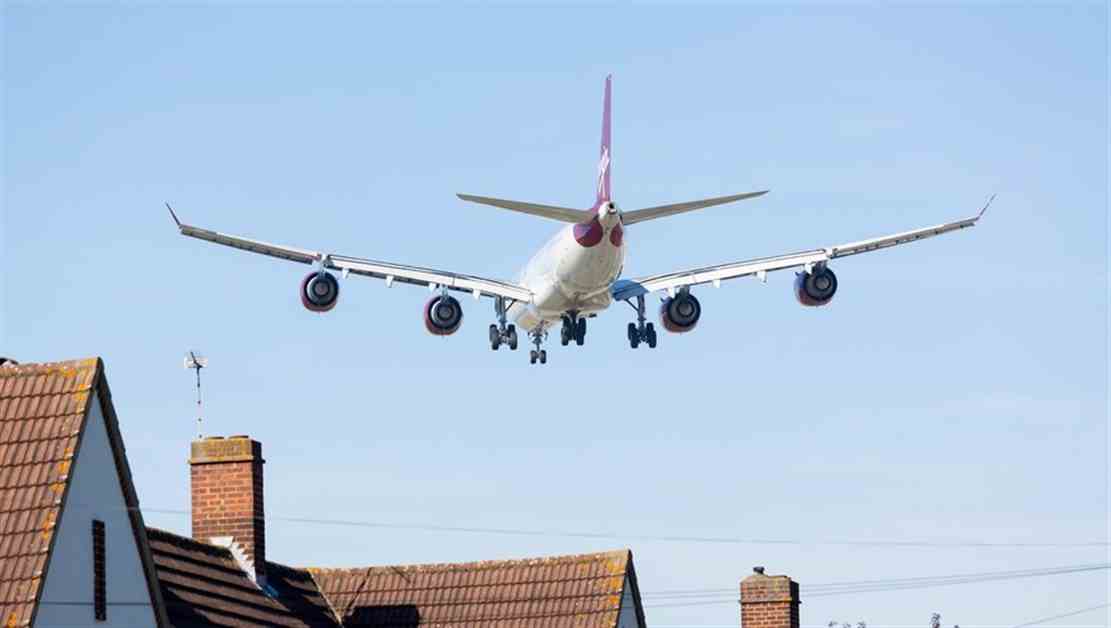Researchers have found a link between prolonged exposure to airplane noise and an increase in body mass index in the United States. This is a consequence of noise pollution, which could add to the long list of detrimental health effects for residents. It’s not very pleasant to hear planes flying over your garden or through your window all day long. This is a situation that people living near airports are familiar with. However, this noise pollution could have an unknown effect on health: it could lead to weight gain. At least, this is the conclusion of researchers from the Boston University School of Public Health and Oregon State University, who recently published a study in the journal Environment International. According to their findings, airplane noise above 45 decibels could be linked to a higher body mass index (BMI) and could be altered as early as age 18. «A sound level of 45 decibels (dB) is just above the muffled sounds of a library (40 dB) and quieter than a typical conversation at home (50 dB),» the authors of the study explained in a press release.
The study was conducted in the United States, using data collected between 1995 and 2010 from 74,848 nurses living around the 90 major American airports. Researchers examined airplane noise levels every five years during this period, based on a 24-hour timeframe, taking into account variations in noise levels during day and night. The evolution of BMI from the age of 18 was also calculated. The study results suggest that the link between airplane noise pollution and the risk of weight gain appears to be more pronounced in older individuals than in younger adults. Stronger associations were also observed in participants living on the west coast of the United States, in arid climate zones, and among former smokers. «In our modern world, noise surrounds us constantly, and our bodies may not have adapted to this constant noise exposure. Noise influences stress responses, which can trigger a series of events that may lead to an increase in BMI and, later on, diseases,» said Junenette Peters, co-author of the research. While the study authors did not establish why former smokers seem to be particularly affected, they did hypothesize about regional disparities. «Study participants living in the west may be more exposed to airplane noise due to open windows or the type of housing that allows more noise to penetrate.»
While this study takes an innovative approach by exploring a link between airplane noise exposure and obesity on a national scale in the United States, it is far from the first to highlight the detrimental effects of airport noise pollution on our health. Aviation noise nuisance is particularly associated with sleep disorders or an increased risk of developing cardiovascular diseases, such as hypertension and diabetes. A French study published in 2020 also identified a higher risk of mortality from myocardial infarction in residents of municipalities with higher exposure to airplane noise.




















